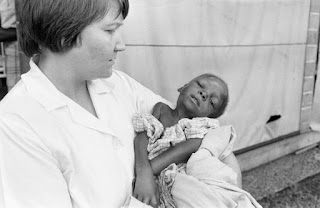BOOK SHELF: Ojukwu Wept Under My Shoulder For Forgiveness Over Role In War ― Amb Ukume

BY JOSEPH ERUNKE ( VANGUARD ) -- Explains how he convinced Shehu Shagari to grant Ojukwu pardon Nigerian Ambassador to Cote D’Ivoire during late President Shehu Shagari’s administration, Denis Ukume, has disclosed that late Biafra warlord, Odumegwu Ojukwu, wept under his shoulder for forgiveness over role in war. The 83-year-old claimed Ojukwu agreed to Shagari’s condition to be referred to simply as “Mr” without any military insignia if he (Ojukwu) would be granted pardon for his role in the Nigerian Civil War. But he said Ojukwu almost marred his chances of being accorded the amnesty when he flouted the condition a few hours after by referring to himself as “General Odumegwu Ojukwu”, in an appreciation letter he wrote to him following his role in the amnesty deal. Ukume’s claims were contained in his book, titled: “I believe”, which he published among three others, launched in Abuja. His three other books also launched alongside, were titled, “My Challenges”, Osofinco and Mamma Mia”,...








